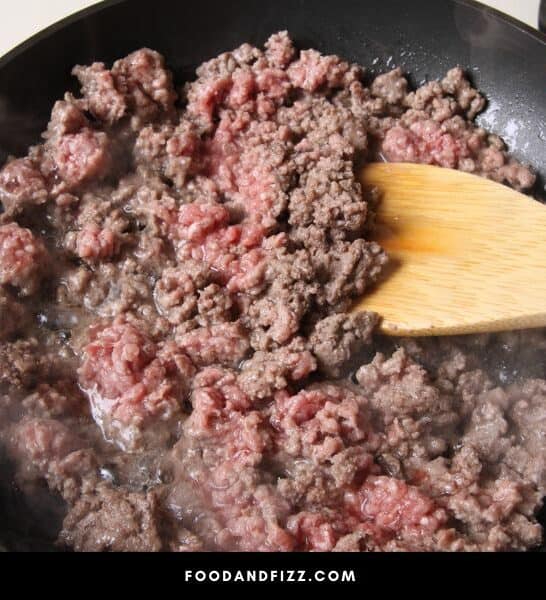The phrase ‘drain ground beef’ means removing excess fat from cooked beef. Raw ground beef typically contains a mixture of steak meat and fat content.
However, the fat is in small quantities of about 20%, which draining improves the flavor and texture of the ground beef.
Besides, it also benefits one’s health as excess animal fats increase cholesterol levels, thus raising the risks of heart attack and high blood pressure.
Can You Drain Ground Beef In The Sink?
It is not advisable to drain ground beef in the sink, as it could cause several problems:
- The fat content quickly solidifies when subjected to cooler temperatures; hence, it could block the sink system in your kitchen.
- When pouring the molten fat, it is usually scorching and could burn any plastic materials used in the sink system, including plastic pipes.
- Draining ground beef in the sink could make your sink a breeding environment for harmful bacteria and germs.

Should I Drain Ground Beef?
It is optional for one to drain ground beef. However, food tastes better with ground beef drained, and it is the recommended thing to do.
You might be wondering why it is so essential that you should drain your ground beef. Well, wonder no more! Here are the main reasons people find it fit to drain ground beef.
- The meat tastes better,
- The mouth-feel is excellent as the texture is improved,
- It has numerous health benefits as it prevents illnesses such as high blood pressure and heart failure due to high cholesterol.
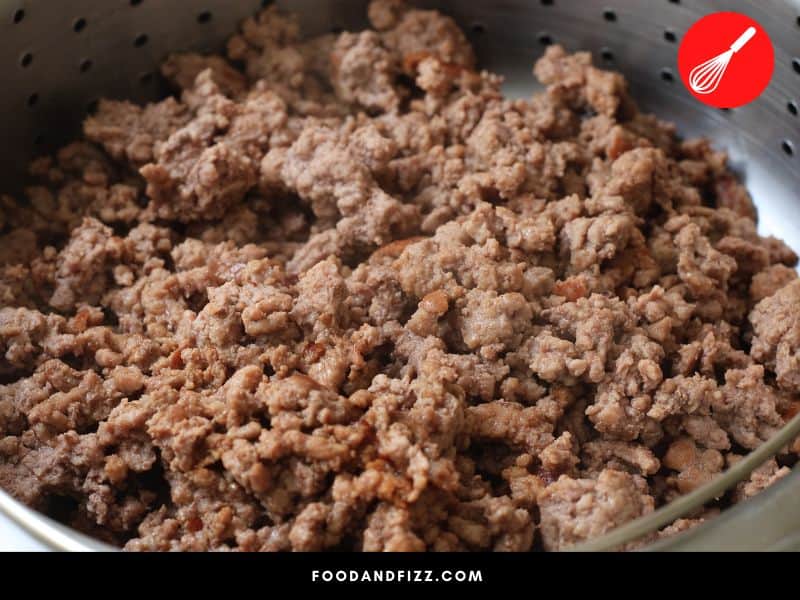
What Makes It Bad to Drain Ground Beef in the Sink?
Draining ground beef in the sink causes several challenges in your kitchen. Therefore, to avoid all the problems, it is advisable to opt for other better and safer ways to drain ground beef and dispose of excess fat. Some of the reasons why draining ground beef in the sink is a bad idea include;
- Clogging of the pipes, hence preventing sink sewer from draining,
- Possible burning of the plastic pipes used in the sink system,
- Solidified fat in your sink attracts insects such as cockroaches and ants,
- Exposure to germs and bacteria in the sink and piping system due to clogging, and
- Terrible smell in your kitchen due to clogging.
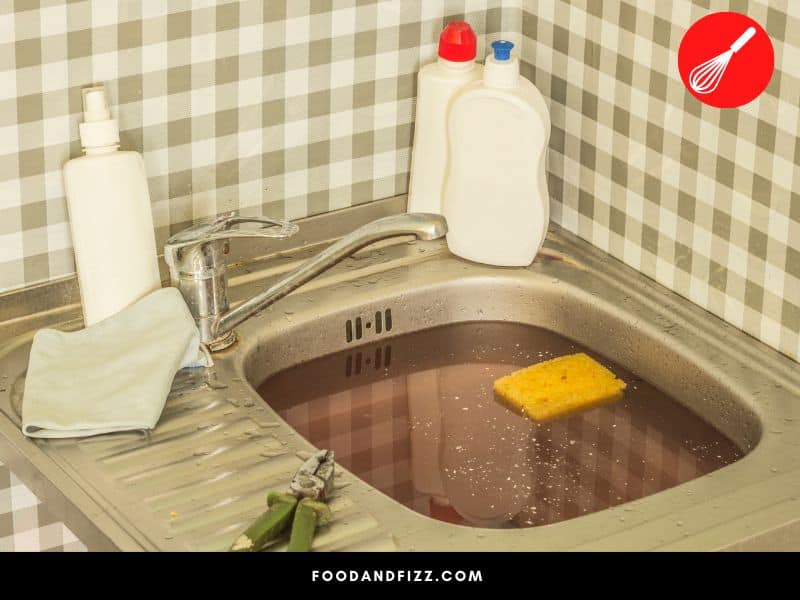
What Should I Do If Solidified Fat Clogs My Sink?
If your sink is clogged, you don’t have to panic. There are simple homemade solutions you can use to unclog the sink.
- First, you could pour boiling water into the sink, which helps melt the fats once more, thus allowing them to release stuck food particles, thereby unclogging the sink.
- Second, you can unclog the sink by using a wire. Pushing and pulling a wire in the pipe will help loosen the clogging, allowing the sewer to drain.
- Third, you could use vinegar and baking soda. However, this technique doesn’t always have the required results.
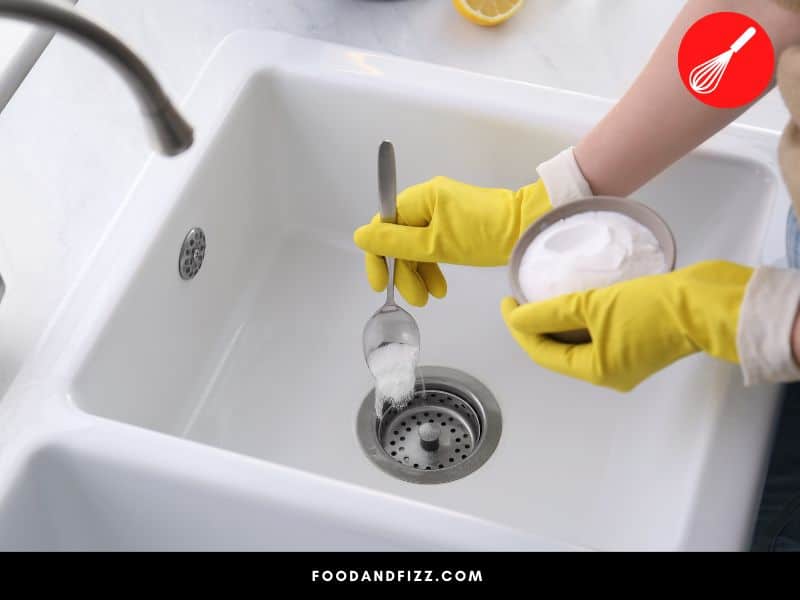
How Can I Dispose of the Drained Fats If I Don’t Drain Ground Beef in the Sink?
One thing that seems complicated in the kitchen is where to dispose of what you consider waste. When it comes to fats, you can’t even throw them in the dustbin as that would attract insects such as ants and cockroaches, which is a nuisance.
One technique to dispose of excess animal fat is to put it in a disposal can and let it cool and solidify. The method ensures a clean kitchen and sink. Thus, avoiding all the health challenges that could arise from clogged sinks.
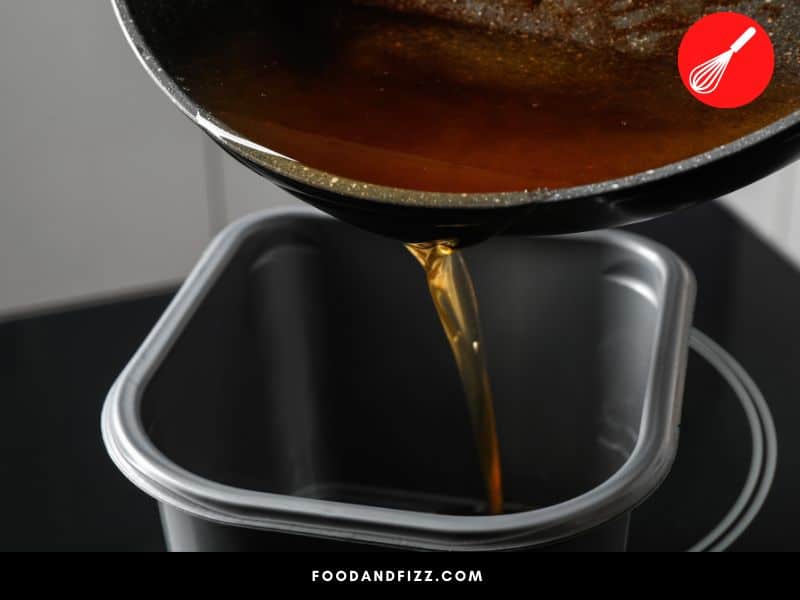
Can I Use Ground Beef Grease for Cooking?
While ground beef grease isn’t the most recommended substitute for butter or cooking oil, it also has a significant role it could play.
Ground beef oil is used in cooking vegetables, cakes, French fries, crisps, scrambled eggs, and caramelized onions. Besides, you can prepare numerous other meals using oil extracted from ground beef. However, there are some disadvantages of using the fat, including;
- Health: Excess animal fat is dangerous to your health safety. As such, the first reason you should drain ground beef is to remove excess fat, which could increase cholesterol in the body.
- Taste and Texture: Oily foods don’t have the best flavor. It is even worse when animal fat begins to solidify when the source of heat is put-off, making one feel like they are chewing fat particles.
- Smell: Beef fat will always smell like beef itself; thus, if you want a different odor on your meal, it’s hard to get it.
- Sediments: Beef fat has small beef particles mixed in it, which are difficult to separate. Therefore, it could ruin the uniqueness of some of the recipes you want to prepare.
- Preservation: Beef fat extracted through this draining isn’t well preserved and spoils quickly.
Frequently Asked Questions to Can You Drain Ground Beef in The Sink?
Can I Drain Ground Beef in the Sink?
It is not advisable to drain ground beef in your sink. That’s because it leads to clogging, bringing other challenges that may include health hazards.
How Can I Safely Drain Ground Beef?
The best way to drain ground beef is to pick the meat using a perforated spoon and let the oil drain into the cooking container. Let the fat cool, and then scoop it with a spoon, pot it into a disposable container, and throw it into a dustbin.
What Can I Do if the Sink Clogs Due to Draining Ground Beef Oil There?
If the sink clogs because you poured ground oil there, it is best to boil clean water and pour it into the sink.
Conclusion to Can You Drain Ground Beef in The Sink?
From the information analysis above, it is advisable to drain ground beef after cooking it. If you intend to use the fat for another cooking purpose, store it clean and safe.
However, if you opt to dispose of it, don’t pour it into the sink, but in a disposable container, and let it cool before disposal. Otherwise, pouring it into the sink could lead to clogging.

